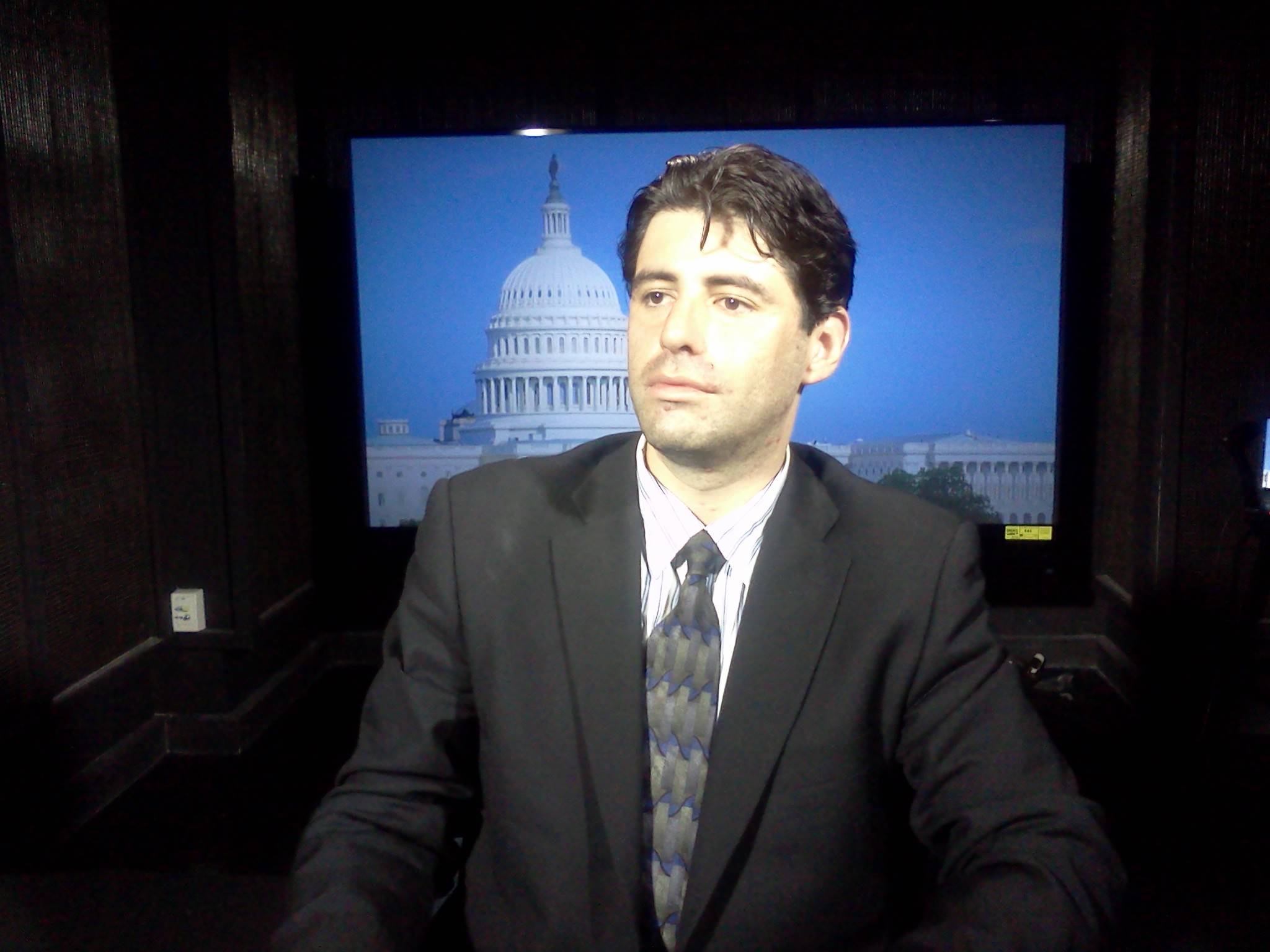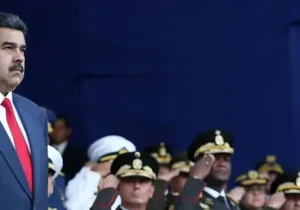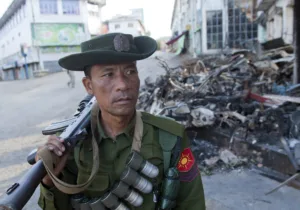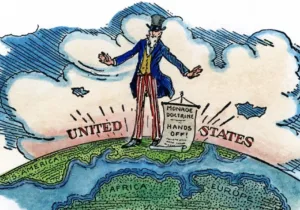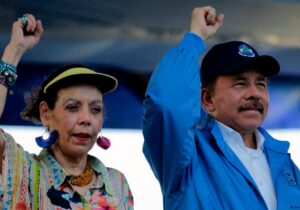It is difficult to believe that the socioeconomic and governmental crisis in Venezuela can be solved in a way that does not include violence. In this complex situation, governments across the Western Hemisphere (and the world) either support interim President Juan Guaidó or de facto President Nicolás Maduro. Think tanks, research centers, and other such entities have taken similar positions. In this commentary, we will discuss the position the church, both in Caracas and the Vatican, regarding the situation in Venezuela
Calls for Peace
As the situation becomes more complex and violent, the church has maintained a two-prong position: it has attempted to remain neutral while calling for peace and dialogue at the same time. For example, during a January trip to Panama, Pope Francis called for a “peaceful and just solution” to the crisis. There have been many rumors about the possibility of the Catholic Church becoming a mediator between the Maduro regime and opposition forces, but this has yet to occur (and there is little reason to believe it would be successful).
Meanwhile, the Venezuelan clergy attempts to remain neutral while also explaining how the situation in the country is worsening. For example, back in mid-February, Father Arturo Sosa, head of the Society of Jesus in Venezuela, declared that his fellow Venezuelans “are suffering immensely as poverty has increased.” The Jesuit leader also declared that “the Venezuelan Episcopalian Conference (CEV)…has repeatedly stated that it works on behalf of the people, that it takes no political position nor does it want political polarization.”
Similarly, Father Esteban Galvis, from the Nuestra Señora de Lourdes de Ureña Church, Tachira Department, stated in early March that “as time passes, the health of some seven thousand patients that have been receiving treatment in Cucuta, they are getting worse and they could die.”
Calls for Change
Of course, priests are humans, and it is virtually impossible to not desire some kind of change as these individuals witness firsthand the ongoing suffering and tribulations of the Venezuelan population.
Hence, it is no surprise that several Venezuelan priests have also made statements calling for some type of (non-violent) change in Caracas. For example, the aforementioned Father Sosa of Cucuta has stated that “the hope is that Venezuelan society may find a peaceful solution that leads to political elections.”
Likewise, Bishop Mario Moronta, vice-president of the CEV, passionately called for a cease of violence in February. His message was specifically aimed at the Venezuelan military and police, which have carried out repressive tactics against the population, following Maduro’s orders. Moronta reportedly declared “I am asking the armed forces, all the guards, all the police, in the name of God, to not use weapons to attack those that are trying to do good to all of Venezuela.” Back in February, the CEV issued a press release with a similar request: that the Venezuelan armed forces allow humanitarian aid to enter the country, but this largely did not occur due to Maduro’s orders.
Calls for Continuation
Amazingly, there are also some members of the Venezuelan clergy who support the de facto Maduro regime. The most outspoken individual is a Jesuit priest called Numa Molina, who became well known in 2017 as he led a religious ceremony during the installation of the pro-Maduro National Constituent Assembly (not to be confused with the pro-Guaidó National Assembly).
Molina has also made some incendiary comments in recent weeks. For example, a March 16 article in the Venezuelan news agency VTV (which has ties with the Venezuelan government), quotes Molina as stating “the imperial Devil and his infernal delegates, like Judas, sold themselves in exchange for oil, for gold, for coltan, and because they have miserable, tormented souls. And the people saw darkness, but its soul, the people’s soul, has its own light, like the sun. Because in Venezuela even the poor people are beams of light in the night.” Previously, in a June 2018 interview with Globovision, Father Molina similarly critiqued the newly elected president in Colombia, Ivan Duque, and declared (incorrectly) that Bogota had joined NATO.
Final Thoughts: The Faith and Reality
The research carried out by this author on church-government ties in Venezuela nowadays suggests that the overall majority of the clergy is either anti-Maduro or at least is struggling to remain neutral. There are certainly some members of the clergy, such as the aforementioned Father Molina, who are openly pro-Maduro, but they are likely a minority.
The Vatican has attempted to mediate the Venezuelan crisis, without success; meanwhile, the Venezuelan clergy is attempting to help the people of this South American nation, with limited success as the Maduro regime did not allow for international aid to cross into Venezuela back in February. Keeping the faith and hoping that tomorrow will be a better day is becoming increasingly difficult in Venezuela.
Wilder Alejandro Sanchez is an analyst who focuses on geopolitical, military, and cybersecurity issues.
The views expressed in this article are those of the author alone and do not necessarily reflect those of any institutions with which the author is associated.
Photo Credit: Catholic church in Isnotú, Trujillo, Venezuela. November 2013. Via Wikimedia Commons.
